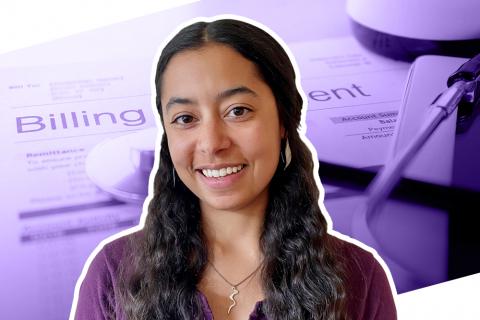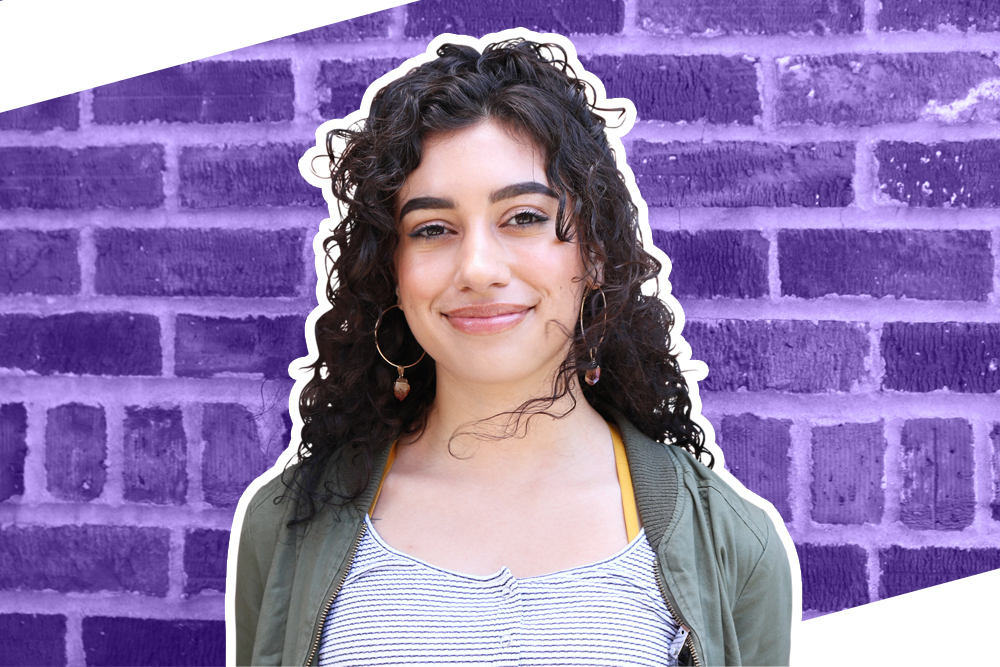
Student stipend recipient, Sydney Rogalla
While earning her MPH from the University of Washington, Sydney Rogalla completed her capstone project with the Washington State Office of the Insurance Commissioner (OIC).
The OIC advocates on behalf of consumers and provides regulatory oversight of insurance industries across the state.
Over the past several years, both the State of Washington and the federal government have passed bills addressing medical billing. Most of these laws have focused on providing consumers with protections against balance or “surprise” billing charges. In the wake of these new laws, OIC increasingly turned toward improving consumer awareness and understanding of the rights and protections afforded under both laws.
Sydney’s project focused on making improvements to the OIC website. “The ultimate goal was to make the website a place where consumers could access useful information and speak to OIC representatives when issues arise,” she said. To support her work, Sydney received a stipend from the Northwest Center for Public Health Practice, which provides financial support for students working on a variety of public health projects across the Pacific Northwest.
“As I began my project, it quickly became apparent that literacy is one of the biggest barriers to health insurance utilization,” Sydney explained. “Without consumers having a better understanding of their health insurance, they will always be at a disadvantage when they seek medical care.”
Sydney began with a background literature review on balance and surprise billing, health insurance literacy, and public health education campaigns. “I focused on the facilitators and barriers to consumer understanding of existing policies, and my review informed the development of the stakeholder interviews I subsequently conducted.”
“Nearly everyone I interviewed expressed the concern that consumer health insurance literacy was the greatest single barrier to consumers understanding and utilizing the protections available to them under the law. Everyone I talked with had experiences where they were required to explain basic health insurance terminology and concepts to consumers before they could even begin addressing billing issues.”
“About 44% of Washingtonians are reading at or below a 7th grade level,” Sydney added. “This leaves them and their caregivers in a challenging position when it comes to reading and understanding their medical billing. We knew that any resources we might suggest had to meet consumers at their literacy levels and provide them the information they needed in an easily digestible format.”
After completing her literary review and stakeholder interviews, Sydney created several deliverables for the OIC. “I developed a Health Insurance Issue Brief to be distributed to the Consumer Advocacy team at the OIC. I also developed an FAQ and Glossary. Both of these were written at a 6th-8th grade reading level to improve consumer understanding of legal protections. My hope is that by making quality, accessible tools, all Washington residents will feel they have trusted resources they can utilize if and when they need to.”
“This was an amazing project to be part of, and I learned many valuable lessons along the way,” Sydney reflected. “I learned how to manage an entire project from start to finish, as well as how to meet deadlines and work collaboratively across a broad spectrum of teams.”
“Most importantly, by staying focused on evidence-based practices and research, I was able to create a meaningful project that not only met expectations, but will hopefully have a meaningful impact on people’s lives.”
The Northwest Center for Public Health Practice continues to provide ongoing funding for students involved in various public health projects. Visit the NWCPHP’s Student Projects page to learn more about past projects, eligibility, and how to apply directly for a stipend.


